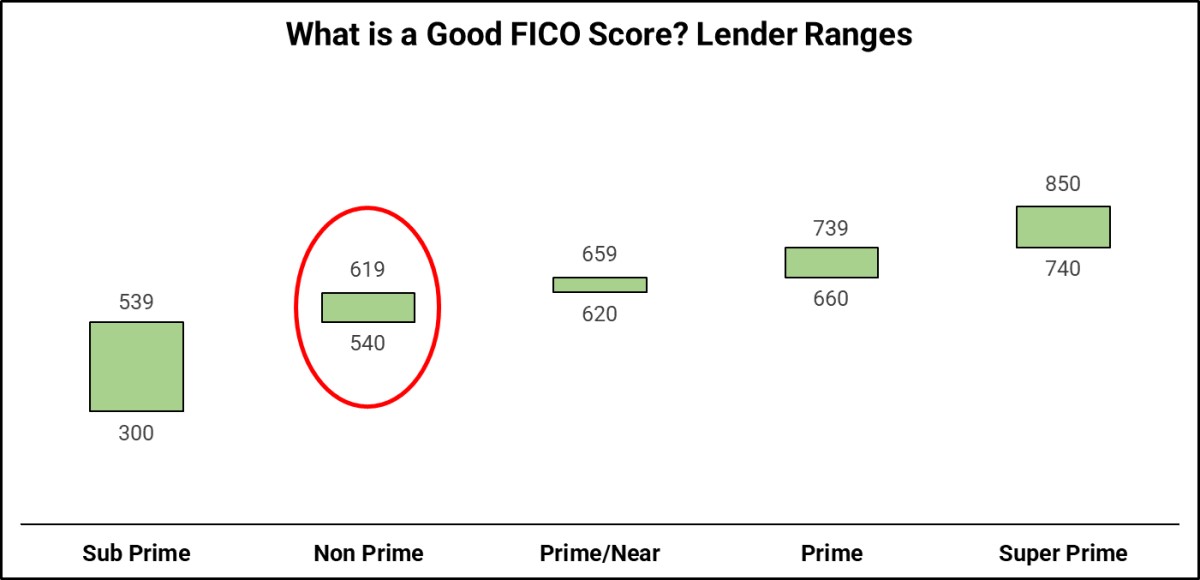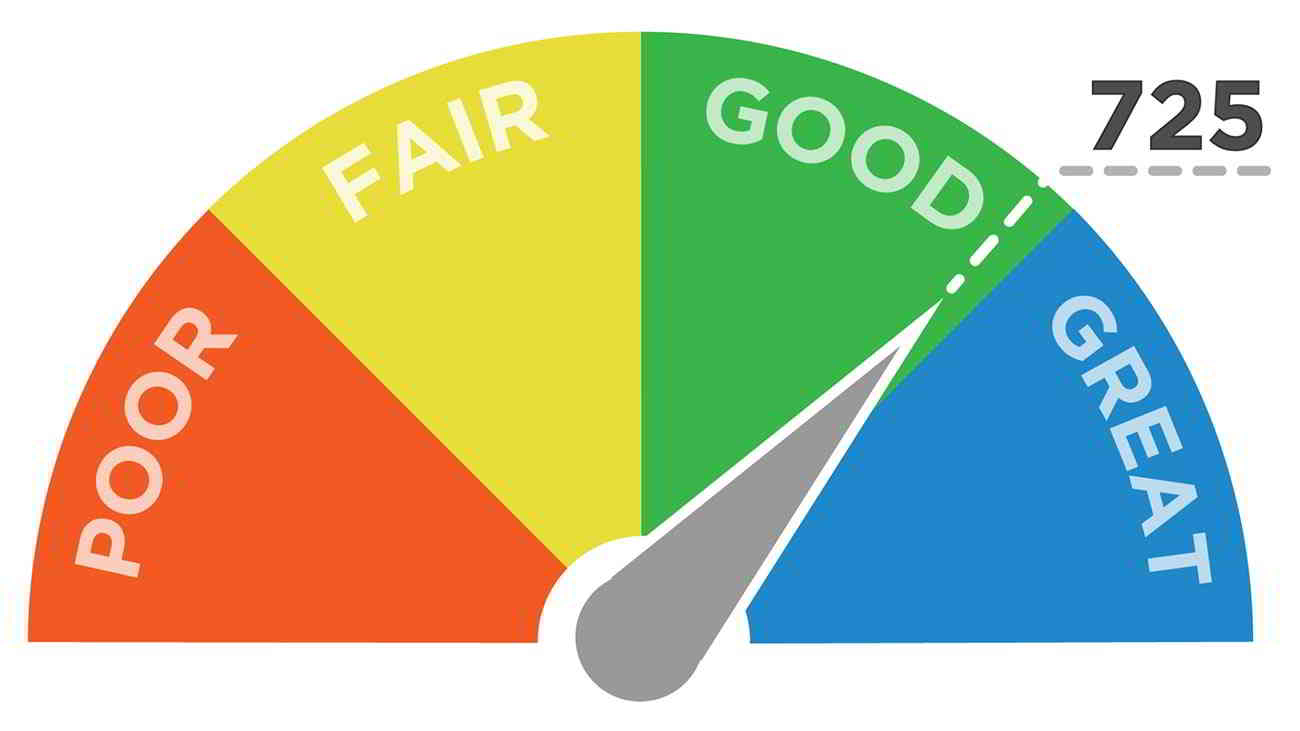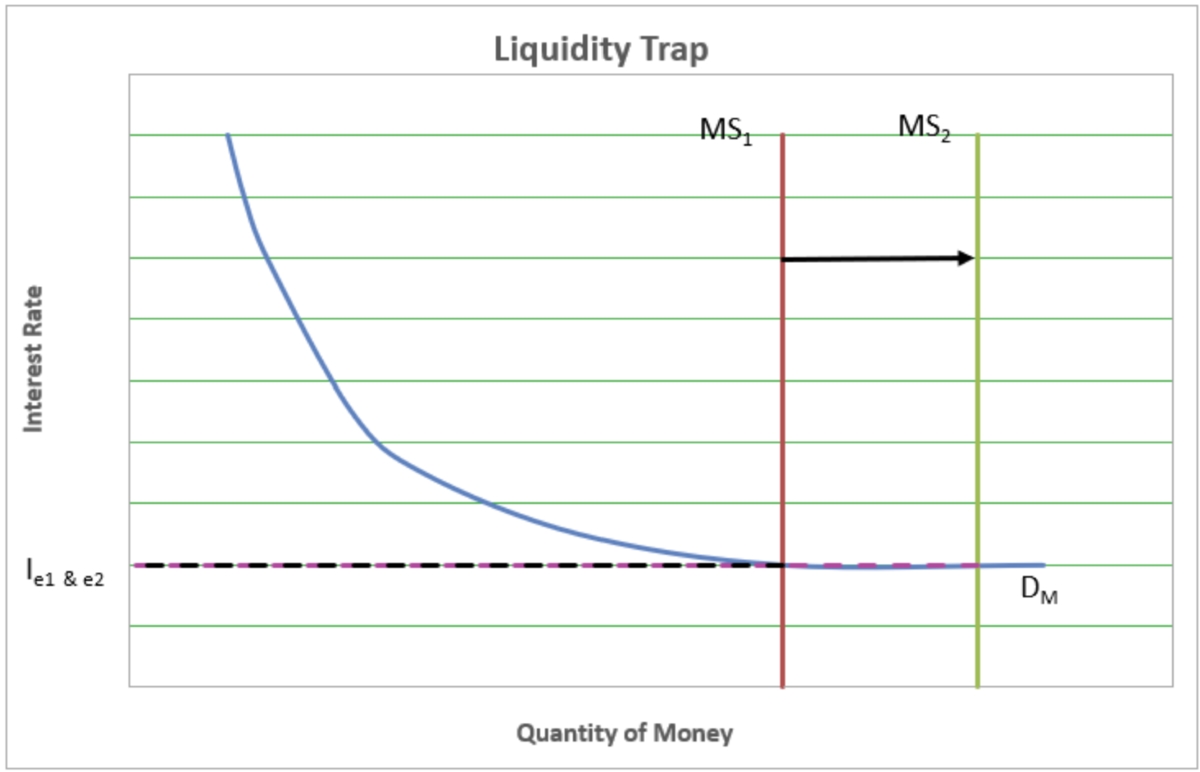

Finance
What Can I Do With A Masters In Accounting
Modified: February 21, 2024
Unlock a world of opportunities in finance with a Masters in Accounting degree. Gain the knowledge and skills needed to excel in various financial roles and advance your career to new heights.
(Many of the links in this article redirect to a specific reviewed product. Your purchase of these products through affiliate links helps to generate commission for LiveWell, at no extra cost. Learn more)
Table of Contents
- Introduction
- Job Opportunities in Accounting
- Careers in Public Accounting
- Careers in Corporate Accounting
- Careers in Government Accounting
- Careers in Nonprofit Accounting
- Careers in Forensic Accounting
- Careers in Tax Accounting
- Careers in Financial Planning
- Careers in Auditing
- Careers in Consulting
- Advancement Opportunities with a Masters in Accounting
- Salary Potential with a Masters in Accounting
- Continuing Education and Certifications
- Professional Organizations for Accountants
- Conclusion
Introduction
Welcome to the world of accounting! If you are considering pursuing a Masters in Accounting, you are embarking on a rewarding and versatile career path. Accounting is a fundamental component of every organization, ensuring financial health and stability. With a Masters in Accounting, you will gain in-depth knowledge of accounting principles, financial reporting, auditing, taxation, and more.
Accounting professionals play a critical role in helping businesses and individuals manage their financial resources, analyze data, and make informed decisions. The demand for highly skilled accountants continues to rise, offering abundant job opportunities and competitive salaries.
Whether you are interested in public accounting, corporate accounting, government accounting, or another specialized field, a Masters in Accounting will provide you with the necessary skills and expertise to excel. Additionally, an advanced degree in accounting opens doors to leadership positions and opportunities for professional growth.
In this article, we will explore the various job opportunities available to individuals with a Masters in Accounting. From public accounting to forensic accounting, financial planning to consulting, there are diverse career paths you can pursue based on your interests and strengths.
Furthermore, we will examine the potential for career advancement and the potential salary levels in the accounting profession. Additionally, we will discuss the importance of continuing education and certifications to stay ahead in this dynamic field.
Lastly, we will highlight some of the professional organizations that accountants can join to network, access resources, and stay connected with industry trends.
So, whether you are a recent graduate, considering a career change, or looking to enhance your existing accounting skills, a Masters in Accounting will help you achieve your career goals. Let’s dive in and explore the exciting world of accounting!
Job Opportunities in Accounting
With a Masters in Accounting, you will have a wide range of job opportunities available to you. The field of accounting offers diverse career paths in areas such as public accounting, corporate accounting, government accounting, nonprofit accounting, forensic accounting, tax accounting, financial planning, auditing, and consulting.
In public accounting, you can work for accounting firms of varying sizes, providing services such as auditing, tax preparation, financial advisory, and consulting for a diverse clientele. This field offers opportunities for advancement and specialization in areas like assurance, tax, and advisory services. Public accountants often pursue professional certifications such as Certified Public Accountant (CPA) to enhance their credibility and career prospects.
Corporate accounting roles are available in companies of all sizes across industries. As a corporate accountant, you will be responsible for managing and analyzing financial data, preparing financial statements, budgeting and forecasting, and ensuring compliance with regulations. You may also have the opportunity to specialize in areas like cost accounting, financial analysis, or internal auditing.
Government accounting provides opportunities to work in various government agencies at the local, state, or federal level. These positions involve managing public funds, overseeing budgets, performing financial analysis, and ensuring financial transparency and accountability. Government accountants often need to have a strong understanding of government regulations and accounting standards.
Nonprofit accounting is another meaningful career path where you can make a difference. Nonprofit organizations rely on accountants to manage their finances, track donations, prepare grant reports, and ensure compliance with regulations. This field offers the opportunity to contribute to the greater good by supporting organizations focused on social causes.
Forensic accounting is a specialized field that combines accounting, investigative skills, and legal knowledge. Forensic accountants investigate financial crimes, analyze financial data, and provide expert testimony in legal proceedings. They play a crucial role in uncovering financial fraud, embezzlement, and other financial irregularities.
Tax accounting offers opportunities to specialize in tax planning, preparation, and compliance. Tax accountants help individuals and businesses navigate the complex tax laws, minimize tax liability, and ensure compliance with tax regulations. This field requires staying updated with the latest tax laws and regulations.
Financial planning is another area where accountants can excel. As a financial planner, you will help individuals and businesses develop comprehensive financial strategies, manage investments, plan for retirement, and achieve their financial goals. A strong understanding of accounting principles and financial analysis is crucial for success in this field.
Auditing is a critical function in ensuring the accuracy and integrity of financial information. As an auditor, you will examine financial records, systems, and processes to provide independent assurance that financial statements are free from material misstatements. Auditors work in both public accounting firms and within organizations as internal auditors.
Consulting is a dynamic field where accountants provide expertise and guidance to businesses for various financial matters. Consultants help organizations improve their financial processes, implement accounting systems, develop strategies for growth, and navigate complex financial challenges. This field requires strong analytical and problem-solving skills.
As you can see, the field of accounting offers a wide array of job opportunities. Whether you prefer working with clients, within an organization, or in a specialized field, your Masters in Accounting will set you on a path to a fulfilling and lucrative career. In the next sections, we will explore each career path in more detail, including potential job roles and responsibilities.
Careers in Public Accounting
Public accounting provides a diverse range of rewarding career paths for individuals with a Masters in Accounting. Public accounting firms offer services such as auditing, tax planning and preparation, financial advisory, and consulting to a wide range of clients, including corporations, nonprofit organizations, and individuals.
One of the most common career paths in public accounting is that of an auditor. Auditors examine financial statements, records, and systems of organizations to provide an independent opinion on their accuracy and reliability. They assess internal controls, verify financial transactions, and ensure compliance with accounting principles and regulations. Auditors play a vital role in enhancing the transparency and credibility of financial information.
Beyond auditing, public accounting firms also offer tax services. Tax accountants specialize in preparing tax returns, providing tax planning advice, and helping clients minimize their tax liabilities within legal boundaries. They stay up-to-date with constantly changing tax laws and regulations to ensure clients are in compliance and can take advantage of available tax incentives.
Another career path within public accounting is financial advisory and consulting. As a financial advisor or consultant, you will provide guidance to clients on financial management, investment strategies, risk assessment, and growth opportunities. This role involves analyzing financial data, evaluating business operations, and making recommendations to improve financial performance and achieve strategic goals.
Within public accounting firms, there are opportunities for advancement and specialization. As you gain experience and expertise, you can progress from staff accountant to senior accountant, manager, and ultimately, partner. Many accountants choose to specialize in specific industries or services, such as auditing, tax, or advisory, to become subject matter experts and provide specialized services to clients.
To excel in public accounting, strong analytical and problem-solving skills are essential. Attention to detail, the ability to work under pressure, and effective communication skills are also crucial, as you will be interacting with clients, colleagues, and regulators on a regular basis.
Furthermore, pursuing professional certifications can significantly enhance your career prospects in public accounting. The most common certification for public accountants is the Certified Public Accountant (CPA) designation. Becoming a CPA demonstrates your knowledge, skills, and commitment to upholding high ethical standards in the accounting profession.
In summary, a career in public accounting offers diverse opportunities to work with a wide range of clients, specialize in different areas, and progress to leadership positions within the firm. If you enjoy working with numbers, analyzing financial data, and providing valuable insights to clients, a career in public accounting may be the perfect fit for you.
Careers in Corporate Accounting
If you prefer working within a company rather than a public accounting firm, a career in corporate accounting may be a great fit for you. Corporate accountants play a vital role in managing and analyzing the financial information of businesses across various industries.
As a corporate accountant, your responsibilities will include preparing financial statements, recording and analyzing financial transactions, managing budgets, and ensuring compliance with accounting principles and regulations. You will work closely with other departments, such as finance, operations, and management, to provide financial insights and support decision-making processes.
One of the common career paths in corporate accounting is that of a staff accountant or general accountant. In this role, you will handle day-to-day accounting activities, such as recording transactions, reconciling accounts, and preparing financial reports. You will also assist in budgeting and forecasting, providing financial data to support decision-making, and ensuring the accuracy and integrity of financial records.
As you gain experience and expertise, you can advance to roles such as senior accountant, accounting manager, or controller. In these positions, you will have increased responsibilities, including overseeing the accounting department, preparing financial analyses and reports for management, and ensuring compliance with financial regulations and reporting requirements.
Specialization opportunities exist within corporate accounting as well. For example, you can focus on cost accounting, where you analyze and control costs within the organization, provide insights on cost-saving measures, and support pricing decisions. Financial analysis is another specialization area where you assess the financial performance of the company, conduct financial modeling, and provide recommendations to improve profitability and efficiency.
Additionally, some corporate accountants transition to roles such as internal auditors or risk managers. Internal auditors evaluate the effectiveness of internal controls, identify areas of risk, and provide recommendations for improvement. Risk managers focus on assessing and mitigating financial risks within the organization, such as credit risk, market risk, or operational risk.
To succeed in corporate accounting, strong accounting knowledge, analytical skills, and attention to detail are crucial. You will also need to have a good understanding of financial software and technology to efficiently manage financial data and processes. Effective communication and collaboration skills are essential as you will be collaborating with colleagues, presenting financial information to management, and working as part of cross-functional teams.
While professional certifications may not be a strict requirement in corporate accounting, pursuing certifications such as Certified Management Accountant (CMA) or Chartered Global Management Accountant (CGMA) can enhance your credibility and career prospects. These certifications demonstrate your commitment to continuous professional development and your expertise in management accounting.
In summary, a career in corporate accounting offers opportunities to work closely with companies, contribute to their financial success, and make strategic financial decisions. If you enjoy working within organizations, analyzing financial data, and collaborating with various stakeholders, a career in corporate accounting may be the perfect fit for you.
Careers in Government Accounting
Government accounting offers unique and rewarding career opportunities for individuals with a Masters in Accounting. Working in government agencies at the local, state, or federal level, government accountants play a crucial role in managing public funds, ensuring financial transparency, and promoting financial accountability.
As a government accountant, your responsibilities may include budgeting, financial reporting, internal control assessment, and compliance with accounting standards and regulations specific to the public sector. You will work closely with government officials, program managers, and auditors to ensure the efficient and effective use of public resources.
One common career path in government accounting is that of a staff accountant or financial analyst. In this role, you will be responsible for managing financial transactions, maintaining financial records, preparing financial reports, and assisting with budget preparation and analysis. You will also monitor grant funding, track expenditures, and ensure compliance with grant requirements.
As you gain experience and demonstrate your skills, you can advance to positions such as senior accountant, accounting supervisor, or financial manager. In these roles, you will have increased responsibilities, including overseeing the accounting functions, providing financial guidance to program managers, and managing financial systems and processes.
Many government accountants also specialize in areas such as governmental auditing or compliance. Governmental auditors perform audits of government agencies to assess compliance with laws, regulations, and internal controls. They help ensure the accuracy and integrity of financial reporting and play a vital role in promoting transparency and accountability in the public sector.
Government accounting careers also offer opportunities to work in specific areas such as taxation, where you will be responsible for administering tax programs, enforcing tax regulations, and providing tax-related services to the public. These roles require a strong understanding of tax laws and regulations and the ability to communicate complex tax information to taxpayers.
To excel in government accounting, you should have a solid understanding of accounting principles and government financial management practices. Attention to detail, analytical skills, and the ability to work with large volumes of financial data are crucial. Strong communication and interpersonal skills are also essential as you will be working with various stakeholders and explaining financial information to non-financial individuals.
While professional certifications may not be mandatory in government accounting, obtaining certifications such as Certified Government Financial Manager (CGFM) can enhance your credentials and demonstrate your expertise in government financial management. This certification covers topics such as governmental accounting, financial reporting, budgeting, and internal control.
In summary, a career in government accounting offers the opportunity to make a positive impact by ensuring the efficient use of public funds and promoting financial transparency and accountability. If you have a passion for public service, enjoy working with government agencies, and have a strong understanding of accounting principles, a career in government accounting may be the perfect fit for you.
Careers in Nonprofit Accounting
Nonprofit organizations play a crucial role in addressing societal needs and creating positive change. With a Masters in Accounting, you can contribute to the success of nonprofit organizations by pursuing a career in nonprofit accounting. Nonprofit accountants provide financial management and guidance to these organizations, ensuring their financial health and compliance with regulations.
As a nonprofit accountant, your responsibilities may include managing budgets, tracking donations and grants, preparing financial statements, and ensuring compliance with accounting standards specific to the nonprofit sector. You will work closely with program managers, board members, and external stakeholders to maintain financial transparency and accountability.
One common career path in nonprofit accounting is that of a staff accountant or financial analyst. In this role, you will handle day-to-day accounting activities, such as recording financial transactions, reconciling accounts, and preparing financial reports. You will also participate in budgeting processes, monitor expenses, and provide financial updates to management and the board of directors.
As you gain experience and expertise, you can advance to positions such as senior accountant, finance manager, or controller. In these roles, you will have increased responsibilities in overseeing financial operations, managing financial reporting, and providing financial insights to support strategic decision-making.
Nonprofit accounting offers opportunities to specialize in areas such as grant accounting or fund accounting. Grant accountants manage the financial aspects of grants, ensuring compliance with grant requirements, preparing financial reports for funders, and tracking the impact of grant-funded programs. Fund accountants focus on managing specific funds within the organization, ensuring proper allocation and utilization of resources to fulfill the organization’s mission.
In addition to financial accounting roles, nonprofit organizations also rely on internal auditors to assess internal controls, identify areas of risk, and recommend process improvements. Internal auditors play a critical role in ensuring the effectiveness and efficiency of financial operations within nonprofit organizations.
To excel in nonprofit accounting, strong accounting knowledge, attention to detail, and analytical skills are essential. Nonprofit accountants should also possess good communication skills to collaborate with program managers, board members, and external stakeholders. Understanding the unique challenges and regulations specific to the nonprofit sector is crucial to maintaining financial compliance and achieving organizational goals.
While professional certifications may not be mandatory in nonprofit accounting, pursuing certifications such as Certified Nonprofit Professional (CNP) or Certified Public Accountant (CPA) can enhance your credentials and demonstrate your expertise in nonprofit financial management. These certifications cover topics such as nonprofit governance, financial management, fundraising, and ethical standards.
In summary, a career in nonprofit accounting allows you to combine your accounting skills with a passion for making a positive impact. By ensuring financial transparency and accountability within nonprofit organizations, you contribute to their success in delivering valuable services to communities. If you are motivated by the mission-driven work of nonprofits and have a strong understanding of accounting principles, a career in nonprofit accounting may be the perfect fit for you.
Careers in Forensic Accounting
If you have a keen eye for detail and a passion for solving financial puzzles, a career in forensic accounting may be the perfect fit for you. Forensic accountants are financial detectives who investigate financial crimes, analyze complex financial data, and provide expert testimony in legal proceedings.
As a forensic accountant, your responsibilities include identifying and analyzing financial irregularities, such as fraud, embezzlement, or money laundering. You will work closely with law enforcement agencies, attorneys, and businesses to uncover financial evidence, conduct forensic audits, and present findings in a clear and credible manner.
One common career path in forensic accounting is with forensic accounting firms or consulting firms specializing in forensic services. In these roles, you will work on a variety of projects, including financial fraud investigations, asset tracing, business valuations, and dispute resolutions. You may also collaborate with other forensic specialists, such as digital forensics experts or forensic psychologists, to build comprehensive cases.
Forensic accountants are often involved in insurance claims investigations to determine the financial loss resulting from a claim. Insurance companies rely on forensic accountants to assess the financial impact of incidents such as fires, accidents, or natural disasters, and to detect any fraudulent claims.
Another career path within forensic accounting is working for law enforcement agencies or government agencies involved in financial investigations. In these roles, you will assist in collecting and analyzing financial evidence, tracing illegal financial transactions, and providing expert testimony in court cases.
To excel in forensic accounting, strong analytical and investigative skills are crucial. You should have a deep understanding of accounting principles and financial analysis techniques. Moreover, the ability to work under pressure and handle large volumes of financial data is necessary. Excellent communication skills are also vital, as you will need to present complex financial findings in a clear and understandable manner to legal professionals and non-financial individuals.
Professional certifications can significantly enhance your credibility and career prospects in forensic accounting. The most recognized certification in this field is the Certified Fraud Examiner (CFE) designation. Becoming a CFE demonstrates your expertise in detecting financial fraud, understanding fraud prevention and deterrence, and investigating financial crimes.
In summary, a career in forensic accounting offers an exciting opportunity to combine your accounting skills with investigative work. By uncovering financial fraud and providing crucial evidence in legal proceedings, forensic accountants play a vital role in maintaining financial integrity and justice. If you have a passion for forensic work, attention to detail, and strong analytical skills, a career in forensic accounting may be the perfect fit for you.
Careers in Tax Accounting
If you have a knack for numbers and a passion for helping individuals and businesses navigate the complexities of tax regulations, a career in tax accounting may be an ideal path for you. Tax accountants specialize in tax planning, preparation, and compliance for individuals, businesses, and organizations.
As a tax accountant, your responsibilities include staying up-to-date with constantly changing tax laws, regulations, and policies. You will work with clients to assess their financial situation, identify potential tax deductions and credits, and ensure compliance with tax laws. Additionally, you will prepare and file tax returns accurately and on time, minimizing tax liabilities while adhering to legal requirements.
Tax accountants can work for accounting firms, corporations, government agencies, or even as independent consultants. They serve a wide range of clients, from individuals to small businesses to multinational corporations.
One common career path in tax accounting is within public accounting firms. In these firms, tax accountants provide comprehensive tax services to clients, including tax planning, compliance, and tax consulting. They assist clients in maximizing tax benefits, managing tax risks, and ensuring adherence to tax laws and regulations. Tax professionals in public accounting firms may specialize in areas such as individual tax, corporate tax, international tax, or estate and gift tax planning.
Careers in tax accounting can also be pursued within corporations. Many large companies have in-house tax departments to handle complex tax matters. In these roles, tax accountants work closely with other departments to ensure proper tax treatment of transactions, identify tax-saving opportunities, and help the company maintain tax compliance.
Government agencies also employ tax accountants to enforce tax laws, review tax returns, and conduct audits. These roles may involve assisting with tax policy development, conducting investigations into potential tax fraud, and providing guidance to taxpayers.
Tax accountants can also choose to specialize in specific areas such as international tax, where they navigate the intricate tax rules and regulations governing cross-border transactions. In this field, tax professionals help multinational companies structure their international operations in a tax-efficient manner and ensure compliance with international tax reporting requirements.
Strong analytical and problem-solving skills are essential in tax accounting, as you will be analyzing complex tax documents, interpreting tax laws, and advising clients accordingly. Attention to detail and critical thinking are crucial to identify potential tax risks or opportunities. Excellent communication skills are also important, as you will need to explain complex tax concepts to clients and provide guidance on tax planning strategies.
Professional certifications can enhance your credibility and career prospects in tax accounting. The most recognized certification in this field is the Certified Public Accountant (CPA) designation. Becoming a CPA demonstrates your expertise in accounting, auditing, and tax principles, and can open doors to more senior and specialized tax roles.
In summary, a career in tax accounting offers the opportunity to provide valuable tax planning and compliance services to individuals and businesses. If you have a strong understanding of tax laws, attention to detail, and a passion for serving clients’ needs, a career in tax accounting may be the perfect fit for you.
Careers in Financial Planning
If you have a passion for helping individuals and businesses achieve their financial goals, a career in financial planning may be the perfect fit for you. Financial planners provide comprehensive financial advice and guidance to clients, helping them create strategies to manage their finances, grow their wealth, and plan for their future.
As a financial planner, your responsibilities may include assessing clients’ financial situations, setting realistic goals, developing personalized financial plans, and providing recommendations on investments, retirement planning, insurance, and tax strategies. You will work closely with clients to understand their financial objectives, risk tolerance, and time horizons, tailoring financial plans to meet their specific needs.
Financial planners can work in various settings, including financial planning firms, banks, investment firms, or as independent consultants. They serve a diverse clientele, ranging from individuals and families to businesses and organizations.
One common career path in financial planning is within financial planning firms. In these firms, financial planners work with individual clients to assess their current financial situation, develop a comprehensive financial plan, and provide ongoing guidance to help clients achieve their financial goals. Financial planners may specialize in areas such as retirement planning, investment management, estate planning, or tax planning.
Another career path is working for banks or other financial institutions. Financial planners in these settings assist clients with a range of financial needs, including investment strategies, retirement planning, insurance options, and wealth preservation. They may work with high-net-worth individuals, business owners, or institutional clients.
Some financial planners choose to become independent consultants, offering their services on a freelance basis. These professionals have the flexibility to work with a diverse client base, set their own rates, and provide customized financial solutions.
In addition to providing financial planning services, many financial planners obtain licenses and certifications to offer investment advice and manage client portfolios. These licenses may include the Series 7 license, which allows financial professionals to buy and sell securities on behalf of clients, or the Certified Financial Planner (CFP) designation, which demonstrates expertise in comprehensive financial planning.
Financial planners should possess strong analytical skills, as they often assess complex financial data to develop appropriate strategies. They should also have excellent communication skills to explain financial concepts to clients in a clear and understandable manner. Additionally, the ability to build trusting relationships and empathize with clients’ financial aspirations is vital for success in this field.
Technology has revolutionized the financial planning industry, allowing financial planners to utilize sophisticated financial planning software, asset allocation tools, and online platforms to streamline their processes and provide more effective guidance to clients.
In summary, a career in financial planning offers the opportunity to make a positive impact on clients’ financial lives. If you have strong analytical skills, enjoy helping others achieve their financial goals, and have a passion for financial strategies, a career in financial planning may be the perfect fit for you.
Careers in Auditing
Auditing is a critical function in ensuring the accuracy and integrity of financial information. Auditors play a vital role in examining financial statements, records, and systems of organizations to provide an independent opinion on their accuracy and reliability.
As an auditor, your responsibilities may include assessing internal controls, verifying financial transactions, ensuring compliance with accounting principles and regulations, and identifying areas of risk and improvement. You will work closely with clients or within organizations to conduct audits, provide recommendations for process enhancements, and enhance the transparency and credibility of financial information.
Careers in auditing can be pursued within public accounting firms, internal audit departments of companies, or government agencies.
One common career path is within public accounting firms. As an auditor in a public accounting firm, you will work with a diverse range of clients, from small businesses to multinational corporations, across various industries. You will perform financial audits, assessing the accuracy of financial statements and ensuring compliance with accounting standards. Auditors in public accounting firms often specialize in areas like assurance services, where they provide an independent opinion on financial statements, or advisory services, where they offer guidance on internal controls and risk management.
Internal auditing offers another avenue for a career in auditing. Internal auditors work within companies to assess internal controls, review processes, and conduct audits to provide management with an objective evaluation of risk and compliance. Internal auditors play a vital role in helping organizations identify areas for improvement, detect potential fraud, and enhance operational efficiencies.
Government agencies also hire auditors to ensure compliance with financial regulations and verify the accuracy of financial information. Government auditors may work at the federal, state, or local level and are responsible for evaluating financial processes, performing compliance audits, and providing financial insights to aid decision-making within the government sector.
To succeed in auditing, strong analytical skills, attention to detail, and a strong understanding of accounting principles and standards are essential. Auditors should be proficient in using auditing tools and software and stay up-to-date with industry regulations and best practices. Effective communication and interpersonal skills are also important, as auditors often interact with clients, colleagues, and regulators.
While not mandatory, obtaining professional certifications can significantly enhance your credibility and career prospects in auditing. The most recognized certification for auditors is the Certified Internal Auditor (CIA) designation. This certification demonstrates your expertise in internal auditing, risk management, and control assessment.
In summary, a career in auditing offers a unique opportunity to ensure the accuracy and reliability of financial information while providing valuable insights to organizations. If you have strong analytical skills, attention to detail, and a keen sense of integrity, a career in auditing may be the perfect fit for you.
Careers in Consulting
Consulting is a dynamic and challenging field that offers diverse opportunities for individuals with a Masters in Accounting. As a consultant, you will provide expertise and guidance to businesses and organizations to help them overcome financial challenges, optimize operations, and achieve their strategic goals.
In consulting, you may work for consulting firms, accounting firms, or as an independent consultant. The field of consulting encompasses various specialties, including financial consulting, management consulting, process improvement, and strategic planning.
Financial consultants work closely with clients to analyze financial data, identify areas for improvement, and develop strategies to enhance financial performance. They may assist with financial planning, budgeting, and forecasting, analyze cost structures, optimize pricing, or provide recommendations for operational efficiencies.
Management consultants focus on helping organizations improve their overall performance, solve complex business problems, and make strategic decisions. They may work on projects related to organizational structure, change management, business process reengineering, or mergers and acquisitions, providing expertise and recommendations to drive growth and success.
Process improvement consultants collaborate with clients to assess and improve their business processes in areas such as inventory management, supply chain optimization, or internal controls. They analyze existing processes, identify bottlenecks and inefficiencies, and develop strategies for streamlining operations and enhancing productivity.
Strategic planning consultants assist clients in developing and implementing strategic initiatives to achieve long-term goals. They conduct market research, analyze industry trends, and provide insights on competitive strategies. Strategic planning consultants work closely with executives and management teams to develop tailored strategies that drive organizational success.
To excel in consulting, strong analytical and problem-solving skills are crucial. Consultants should have the ability to analyze complex problems, think critically, and develop innovative solutions. Effective communication and interpersonal skills are also essential, as consultants often work directly with clients and collaborate with cross-functional teams.
Professional certifications can enhance your credentials and demonstrate your expertise in consulting. The Certified Management Consultant (CMC) designation is a recognized certification for management consultants. Obtaining this certification showcases your competence and adherence to the highest standards of consulting professionalism.
In addition to technical skills, consultants should have a broad understanding of business operations, industry trends, and emerging technologies. Keeping up with the latest developments in the field of consulting is crucial to provide valuable and up-to-date advice to clients.
Consulting offers unique opportunities for professional growth and advancement. As you gain experience and build a strong reputation, you may have the chance to progress to higher-level positions, such as senior consultant, manager, or partner, within consulting firms.
In summary, a career in consulting offers a dynamic and fulfilling path for individuals with a Masters in Accounting. If you enjoy problem-solving, providing strategic advice, and collaborating with clients to drive organizational success, a career in consulting may be the perfect fit for you.
Advancement Opportunities with a Masters in Accounting
A Masters in Accounting opens up a world of advancement opportunities for professionals in the field. The degree provides a solid foundation of accounting knowledge, technical skills, and critical thinking abilities that can propel your career to new heights.
One of the key advancement opportunities with a Masters in Accounting is the potential for career progression. Whether you are working in public accounting, corporate accounting, government accounting, or another specialized field, a master’s degree can set you apart from your peers and position you for more senior-level roles. With experience and additional certifications, such as the Certified Public Accountant (CPA) designation, you can advance to roles like senior accountant, accounting manager, finance director, or even chief financial officer (CFO).
In public accounting, advancement opportunities exist within accounting firms. Starting as a staff accountant, you can progress to more senior positions such as manager, senior manager, and eventually, partner. Advancement often involves gaining expertise in specific areas, building a strong reputation, and developing a client base. Leadership and business development skills are crucial for those looking to climb the ranks in public accounting.
In corporate accounting, a Masters in Accounting can accelerate your advancement within organizations. As you demonstrate your expertise and value in financial management, financial analysis, and strategic planning, you may be promoted to roles such as financial analyst, controller, or CFO. Advancement in corporate accounting often involves proving your ability to drive financial performance, lead cross-functional teams, and make sound business decisions.
In government accounting, opportunities for advancement exist within government agencies at the local, state, and federal level. Typically, you will need to gain experience, demonstrate proficiency in financial management and regulatory compliance, and take on increasing levels of responsibility to advance your career. This could lead to senior-level positions such as finance director, chief financial officer, or even a role in government leadership.
Advancement opportunities are also present in specialized accounting fields. For example, in forensic accounting, experience and reputation play a significant role in advancing to higher-level positions. Forensic accountants who consistently deliver high-quality work, provide credible expert testimony, and uncover financial fraud or irregularities may progress to roles such as forensic accounting manager or director.
Regardless of the field you choose, continuous professional development is essential for career advancement in accounting. Staying updated with the latest accounting standards, regulations, and industry trends through attending seminars, obtaining additional certifications, and pursuing advanced degrees can enhance your marketability and open doors to new opportunities.
Networking and building relationships within the accounting profession and related industries is also crucial for career advancement. Participating in professional organizations, attending conferences or events, and seeking out mentorship opportunities can help expand your professional network and create additional pathways for career growth.
In summary, a Masters in Accounting provides a strong foundation for career advancement across various accounting fields. Whether you aspire to climb the ladder within public accounting, corporate accounting, government accounting, or specialized areas like forensic accounting, the opportunity for career growth is abundant. By continuously expanding your knowledge, developing your skills, and cultivating professional relationships, you can seize these advancement opportunities and reach new heights in your accounting career.
Salary Potential with a Masters in Accounting
Pursuing a Masters in Accounting can significantly enhance your salary potential and open doors to higher-paying job opportunities within the accounting field. The advanced knowledge, skills, and qualifications gained through a master’s degree can significantly impact your earning potential.
The salary potential with a Masters in Accounting can vary based on various factors, including years of experience, location, industry, and job role. However, overall, individuals with a master’s degree tend to earn higher salaries compared to those with only a bachelor’s degree.
One of the key factors influencing salary potential is the field of accounting you choose to specialize in. Public accounting, corporate accounting, government accounting, and specialized areas such as forensic accounting or consulting can offer varying salary ranges.
In public accounting, entry-level positions such as staff accountants typically earn competitive salaries. As you gain experience and progress in your career, your salary can increase significantly. Senior accountants, managers, and partners in public accounting firms can earn lucrative salaries due to the demand for their expertise, the level of responsibility they hold, and the potential for profit-sharing as partners.
Corporate accounting positions also offer strong salary potential. Salaries in corporate accounting can vary based on the size of the organization, industry, and geographic location. Financial analysts, controllers, and CFOs in corporate accounting can earn competitive salaries and potentially receive additional compensation such as bonuses or stock options, particularly in larger organizations.
In government accounting, salaries can be competitive, especially at higher-level positions. Government agencies often offer competitive compensation packages to attract and retain highly skilled financial professionals. Finance directors, chief financial officers, and other high-ranking roles in government accounting can earn substantial salaries.
Specialized areas of accounting, such as forensic accounting, can also offer attractive salary potential. Forensic accountants often earn higher salaries due to the expertise and specialized skills required in their field. Their ability to investigate financial irregularities, perform fraud examinations, and provide expert testimony can command higher compensation.
Additionally, factors such as geographic location and industry can influence salary potential. For example, major cities or regions with a higher cost of living and increased demand for accounting professionals may offer higher salaries to attract and retain talent. Industries such as finance, technology, or healthcare, which often demand specialized accounting expertise, may also provide higher compensation.
It’s important to note that while a master’s degree can increase your salary potential, it is not the sole determining factor. Factors such as professional certifications, years of experience, job performance, and additional skills and qualifications can also impact your earning potential.
Continuing education and professional development are essential to keep your skills up to date and maintain your market value. Obtaining additional certifications, such as the Certified Public Accountant (CPA) designation or specialized certifications, can contribute to higher earning potential.
In summary, a Masters in Accounting can significantly enhance salary potential within the accounting field. Whether you choose public accounting, corporate accounting, government accounting, or specialize in a specific area, the advanced knowledge and skills gained through a master’s degree can open doors to higher-paying job opportunities. Factors such as industry, location, experience, and additional certifications can further impact salary potential. By continuously developing your skills, pursuing advanced certifications, and staying up to date with industry trends, you can maximize your earning potential in the field of accounting.
Continuing Education and Certifications
In the rapidly evolving field of accounting, continuing education and certifications are crucial for professionals seeking to stay current with industry trends, expand their knowledge base, and enhance their career prospects. Continuous learning not only helps you stay competitive but also demonstrates your commitment to professional growth and development.
Continuing education in accounting can take various forms, including professional development courses, seminars, workshops, conferences, and webinars. These opportunities allow you to stay updated on the latest accounting regulations, technologies, and best practices. They also provide a platform for networking with industry peers and exchanging ideas.
One of the most valuable certifications in the accounting profession is the Certified Public Accountant (CPA) designation. Becoming a CPA demonstrates your expertise in accounting principles, auditing, tax regulations, and other relevant areas. It is a well-recognized certification that can enhance your career prospects and open doors to higher-level positions.
In addition to the CPA certification, there are other specialized certifications that can further boost your career in specific areas of accounting. For example:
- The Certified Management Accountant (CMA) certification is designed for professionals specializing in management accounting and financial management. It highlights expertise in areas such as planning, analysis, control, and decision support.
- The Certified Internal Auditor (CIA) certification is ideal for individuals interested in internal auditing. It showcases expertise in internal control, risk management, and governance processes.
- The Certified Fraud Examiner (CFE) certification is highly regarded for professionals in forensic accounting and fraud examination. It demonstrates knowledge in detecting, investigating, and preventing fraudulent financial activities.
These certifications require passing rigorous examinations and meeting specific experience and educational requirements. Attaining these certifications can elevate your professional standing, increase your job marketability, and potentially lead to higher earnings.
Continuing education and obtaining certifications not only benefit your professional growth but also offer personal satisfaction and the opportunity to expand your skill set. They demonstrate your commitment to maintaining high ethical and professional standards, which is highly valued by employers and clients.
As technology continues to advance, it is also essential to stay up to date with the latest accounting software and tools. Proficiency in using accounting software such as QuickBooks, Excel, and specialized industry-specific software can greatly enhance your marketability and efficiency in the workplace.
Furthermore, participating in professional organizations and associations can provide valuable networking opportunities and access to resources and industry updates. Organizations such as the American Institute of CPAs (AICPA), the Institute of Management Accountants (IMA), and the Association of Certified Fraud Examiners (ACFE) offer memberships that provide access to educational resources, publications, webinars, and networking events.
In summary, continuing education and certifications are vital for accounting professionals to stay current, expand their skills, and remain competitive in the field. Pursuing professional certifications such as the CPA, CMA, CIA, or CFE can enhance your career prospects and distinguish you as an expert in your chosen field. Additionally, staying up to date with technological advancements and participating in professional organizations can further contribute to your professional growth and success. Embracing a mindset of lifelong learning is key to thriving in the ever-evolving accounting industry.
Professional Organizations for Accountants
Joining professional organizations is a valuable step for accountants who are looking to enhance their careers, stay connected with industry trends, and network with fellow professionals. These organizations provide access to resources, educational opportunities, and networking events that can contribute to your professional growth and development. Here are some of the top professional organizations for accountants:
- American Institute of CPAs (AICPA): The AICPA is one of the leading professional organizations for certified public accountants (CPAs) in the United States. It offers a wide range of resources, including professional development programs, webinars, conferences, publications, and networking opportunities. Membership in the AICPA provides access to specialized communities, technical resources specific to accounting areas, and opportunities to influence accounting standards.
- Institute of Management Accountants (IMA): The IMA is a global association for management accounting professionals. It focuses on enhancing the management accounting profession through certifications, professional development programs, research, and networking opportunities. The IMA offers various resources, including industry publications, webinars, conferences, and online communities where members can connect and share knowledge.
- Association of Certified Fraud Examiners (ACFE): The ACFE is a professional organization dedicated to fraud detection, prevention, and investigation. It provides valuable resources, certifications, and educational opportunities for professionals interested in forensic accounting, fraud examination, and related fields. Membership in the ACFE offers access to a vast network of fraud examination professionals, publications, events, and specialized training programs.
- National Association of Black Accountants (NABA): NABA is a professional organization focused on promoting diversity and inclusion in the accounting profession. It offers resources, scholarships, mentorship programs, and networking opportunities for African American accounting and finance professionals. NABA provides a supportive community for members to connect, share experiences, and access career development resources.
- The Association of Chartered Certified Accountants (ACCA): The ACCA is a global accounting organization with members in over 180 countries. It offers training, qualifications, and resources in various areas of accounting and finance. The ACCA provides a platform for members to connect with a diverse network of professionals worldwide and access industry insights through publications, webinars, and events.
- The Institute of Internal Auditors (IIA): The IIA is an international professional association for internal auditors. It offers certifications, professional development programs, leading-edge research, and resources to help internal auditors enhance their knowledge and skills. The IIA provides opportunities for members to connect with other professionals in the field, access guidance on industry standards, and stay informed about emerging trends and best practices.
Besides these organizations, there are often regional or country-specific accounting associations that provide support and resources tailored to local accounting practices. These organizations often offer networking events, professional development programs, industry updates, and the opportunity to connect with professionals in your specific geographic area.
Joining professional organizations allows accountants to stay connected with the accounting community, access valuable resources, and keep up to date with changes in regulations, technology, and industry trends. Additionally, active involvement in these organizations can enhance your professional reputation, provide opportunities for leadership roles, and expand your professional network.
In summary, joining professional organizations specific to accounting offers numerous benefits for accountants. These organizations provide access to resources, educational programs, certifications, and networking opportunities that can contribute to your professional growth and success. By becoming a member of these organizations, you can stay connected with the accounting community, access career-enhancing resources, and stay current with industry trends and developments.
Conclusion
Obtaining a Masters in Accounting equips individuals with the knowledge and skills needed to excel in the dynamic and ever-evolving field of accounting. Whether you choose a career in public accounting, corporate accounting, government accounting, or a specialized area like forensic accounting or financial planning, a master’s degree opens up a world of opportunities and possibilities.
Throughout this article, we have explored the diverse job opportunities in accounting, highlighting the roles and responsibilities in each field. We discussed the potential for career advancement, higher salary potential, and the importance of continuing education and certifications in staying ahead in the accounting profession.
Furthermore, we delved into the significance of joining professional organizations specific to accounting, where individuals can access valuable resources, networking opportunities, and industry updates. These organizations provide a sense of community, foster professional growth, and keep accountants connected with the accounting community.
It is crucial to note that success in the accounting field goes beyond technical expertise and qualifications. Soft skills such as communication, teamwork, critical thinking, and adaptability are equally important to thrive in today’s complex business environment.
Whether you are just starting your accounting career, looking to advance your current position, or considering a career change, pursuing a masters in accounting can open doors to rewarding opportunities and a fulfilling professional journey.
In conclusion, a Masters in Accounting sets the foundation for a successful career in a wide range of accounting fields. It provides the knowledge, skills, and credibility needed to excel in the dynamic and highly competitive accounting profession. By leveraging your education, continuing your professional development, and staying engaged with industry trends, you can enhance your career prospects, make a meaningful impact, and contribute to the financial success of organizations and individuals alike.
The world of accounting is waiting for you. Embrace the opportunities, continue learning, and embark on a fulfilling and prosperous career in accounting.














